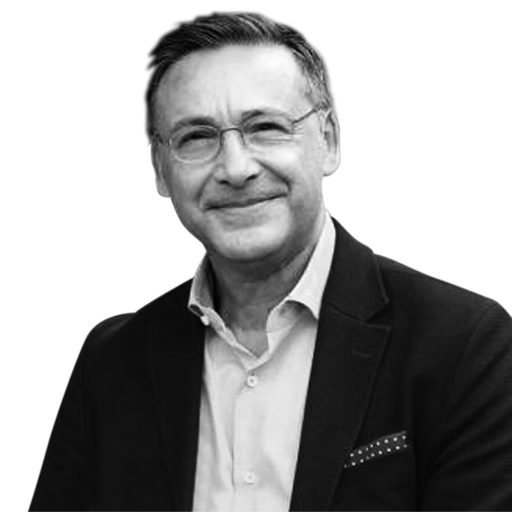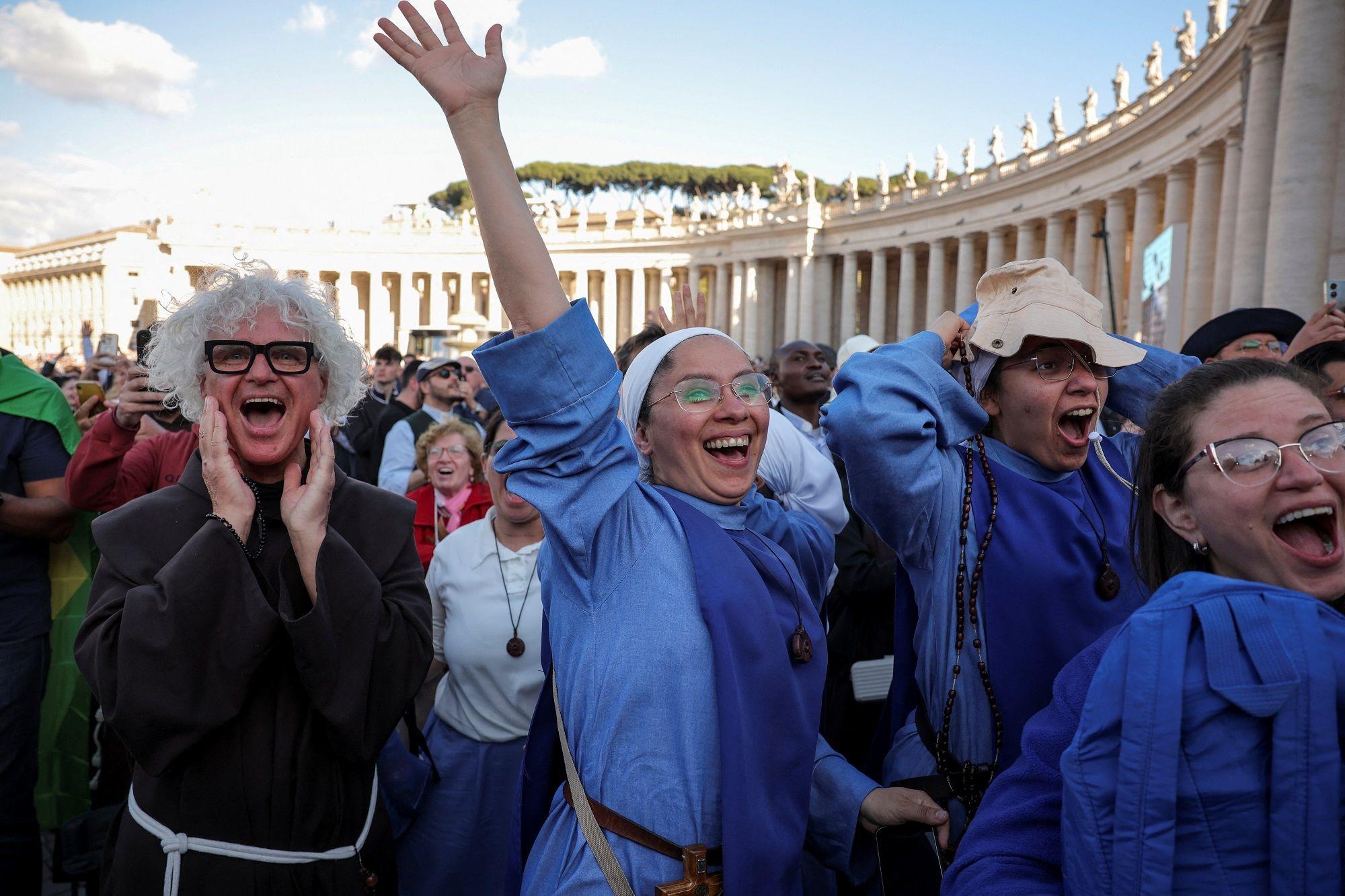Pope Lion XIV is limited in what can change but Francis prepare the soil

Cardinal Robert Purious from the United States was elected a new leader of the Roman Catholic Church; He will be known as Pope Leo XIV. The attention is now focused on what vision the first American pope will bring.
A change in the church is difficult to realize. During his pontiff, Francis often turned attention to change without actually changing church doctrines.
Lion XIV from Chicago and Peru – who is the new pope
He allowed the discussion of the ordination of married men in remote regions, where the population was highly discrepreted by clergy because of a lack of priests, but did not allow it. On his own initiative, he set up a committee to investigate the possibility of ordinating women for deacons, but did not fulfill it.
However, Francis allowed priests to give communion, the most important Catholic mystery of the Body and Blood of Christ, to Catholics who divorced and remarried without giving them cancellation of the wedding.
Similarly, Francis did not change the official doctrine that the mystery marriage was between a man and a woman, but allowed the blessing of gay couples in a way that looked like a sanction of gay marriage.

To what extent will the new pope be – or not – a successor to the Francis line?
As a scientist who studied the scriptures and actions of the Pope from the time of the Second Vatican Council (a series of meetings held to modernize the church from 1962 to 1965), I am aware that every pope comes with his own vision and his own agenda for leading the church.
Yet, the pope, who have preceded them directly, have placed practical restrictions on the changes that can be made. There were also restrictions on Francis; However, the new pope, I dare say, will have more freedom of action because of the signals sent by Francis.
The process of synodality
Francis initiates a process called « synodality » – a term that combines Greek words for « path » and « together ». Synodelism involves the collection of Catholics from different ranks and perspectives to share their faith and pray with each other as they deal with the challenges that the church faces today.
The name selected is the first hint of the direction of Pope Leo XIV
One of Francis’ favorite topics was inclusion. He continued the teaching of the Second Vatican Council that the Holy Spirit – ie. The Spirit of God, who has inspired the prophets and is believed to have been sent by Christ among Christians in a special way – acts throughout the Church; It includes not only the hierarchy, but all the members of the church. This belief is the basic principle underlying synodelism.

Francis began a two -year global advisory process in October 2022, which ended with a Synod in Rome in October 2024. Catholics from around the world offered their views and opinions during this process. The Synod discussed many issues, some of which were controversial, such as the sexual abuse of the clergy, the need for supervision of the bishops, the role of women as a whole, and the ordination of women for deacons, in particular.
The final synodal document did not offer conclusions on these topics, but rather aimed to encourage the transformation of the entire Catholic Church into a synodal church, in which Catholics together deal with the many challenges of the modern world. Francis refrained from a response by issuing his own document. The goal was that the Synod’s statement could be considered independently.
The process of synodality, in a sense, sets restrictions on the bishops and the Pope, emphasizing their need to listen carefully to all members of the Church before making decisions. In another sense, however, in the long run, the process opens the possibility of the necessary processes when, and if the laymen, the Catholics strongly testify that they believe that the church should move in a certain direction.
Change is difficult in church
However, the Pope cannot simply cancel the official positions that his immediate precursors have emphasized. In practice, it is necessary to have one or two paps, during which the Pope will either remain silent on issues that require change, or at least limited to hints and signals on such issues.
In 1864, Pius IX condemned the claim that « the church should be separated from the state and the state from the church. » It was not until 1965 – about 100 years later – the second Vatican Council in the Declaration of Religious Freedom confirmed that « sin was committed when the government imposes on its people, through strength, fear or other means, the confession or denial of any religion … »

The second main reason why the popes can refrain from changing from top to bottom is that they may not want to act as a dictator issuing enforcement orders in an authoritarian manner. Francis was accused by his critics of acting in this way with his position on the Eucharist for the re -married without pre -cancellation of marriage and the blessings for gay couples. However, the main focus of his papacy, with his emphasis on synodelism, was actually in the opposite direction.
It is remarkable that when the Amazon Synod – held in Rome in October 2019 – voted with 128 votes in favor and 41 against to resolve married priests in the Brazilian region of Amazon, Francis rejected this by saying that it was not an appropriate moment for such a significant change.
Hopefully encourages shared values: EU welcomes the new pope
Past doctrines
The belief that the Pope should express the faith of the people, not just his personal opinions, is not a new insight from Francis.
| The papal infallibility doctrine, announced at the First Vatican Council in 1870, claims that the Pope, under certain conditions, can express the faith of the church without mistake. |
The restrictions and qualifications of this power include:
- the pope to speak personally but in his official quality of the church head
- should not be in heresy
- must be free from coercion and with common sense
- should consider questions of faith and morality
- He must consult the relevant documents and other Catholics, so that what he preaches represents not just his own opinions, but the faith of the Church.
The Mariana doctrines for the virgin conception and the Assumption offer examples of the importance of consultation.
| The blameless conception, proclaimed by Pope Pius IX in 1854, is the doctrine that Mary, the mother of Jesus, was preserved by the original sin, a spot inherited by Adam, with which the Catholics believe that all other human beings have been born from the moment of her conception. The Assumption of the Virgin, proclaimed by Pius XII in 1950, is the doctrine that Mary was taken a body and soul in heaven at the end of her earthly life. |
The documents in which these doctrines were proclaimed emphasized that the bishops of the church were consulted and that the faith of the laymen was approved.

Unity, above all
One of the Pope’s main duties is to protect the unity of the Catholic Church. On the one hand, a lot of changes quickly can lead to schism, actual separation in the community.
- In 2022, for example, the global Methodist Church separated from the united Methodist Church because of same -sex marriage and the ordination of non -purpose gay bishops. In recent years, there have been various schism in the Anglican community. The Catholic Church faces such challenges, but has so far managed to avoid schism by limiting real changes.
- On the other hand, non -reasonable changes that recognize the positive processes regarding issues such as the complete inclusion of women or the dignity of gays and lesbians can lead to a large -scale departure of members.
The new pope, Leo XIV, in my opinion, must be a spiritual leader, a vision -friendly person who can upgrade on the inheritance of his immediate precursors in such a way as to meet the challenges of the present moment. He has already stated that he wants a synodal church that is « close to the people who suffer », which signals a lot about the direction it will take.
If the new Pope manages to update church teachings on some hot issues, this will be precisely because Francis has prepared the soil for him.
Dennis Doyle is a professor of religious research at the University of Dayton. He has defended his doctoral title at the Catholic University of America, he has been teaching in Dayton for over 30 years and has been a visiting lecturer at the University in Augsburg and Regensburg.









